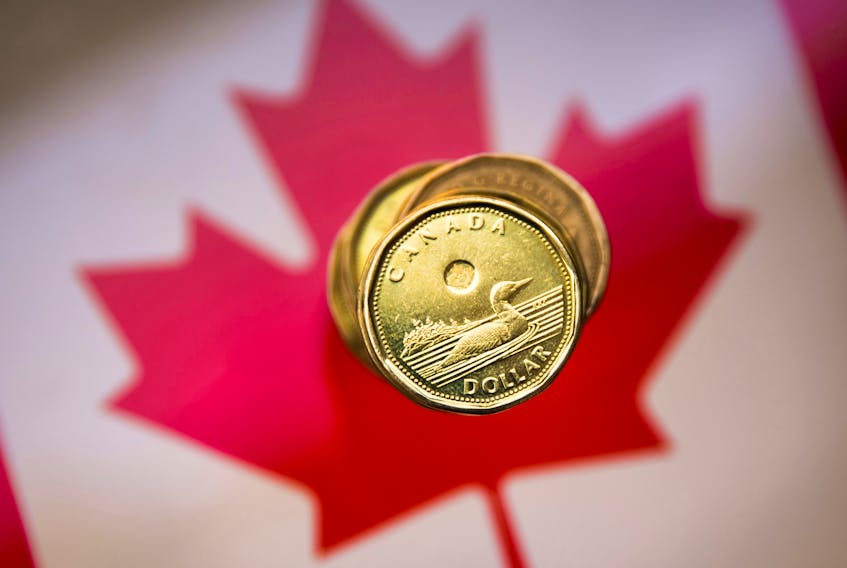Atlantic Canada has a decades-old problem: an underperforming economy. That’s the bad news.
The good news is that Herb Emery, who holds the Vaughan chair in Regional Economics at the University of New Brunswick has charted a route toward prosperity.
For starters, Canada’s easternmost provinces should stop spending like it’s 2008, year one of the most recent global recession.
Back then, “everyone went into Keynesian spending mode,” which may have dampened the impact of a major economic downturn.
Today, however, government overspending threatens to sink the regional economy in a sea of red ink rather than float all boats on a high tide.
“Sooner or later, government is supposed to wean itself off spending and give business capacity to invest,” Emery said in an interview. “Governments have to decide they want a business-friendly rather than a public sector economy.”
To a non-economist, Emery seems to be describing a classic Catch-22. Governments pour so many resources into health care and other crucial programs that they reach a point at which those programs are no longer affordable.
The “eureka” solution is to get the private sector soaring – to augment government revenues not by hiking business taxation but by growing the economy.
Emery has a coast-to-coast perspective on economic growth – he was raised in Ontario, completed his doctoral degree in economics at the University of British Columbia, and taught for 23 years at the University of Calgary before heading east to take his current position at UNB.
Emery is now mandated to understand regional disparities in Canada and develop policies to make the region more prosperous. His has recently focused on the manufacturing sector in New Brunswick. (Along with co-author Xiaolin Guo, Emery this fall completed a 37-page report, A Sector at Crossroads: An Overview of Manufacturing and Opportunities for Growth in New Brunswick.)
“We’ve done pretty well with an outdated productivity formula. Imagine what we could do if we embraced the changes that other regions have made”
Emery says many people mistakenly see manufacturing as grandpa’s economic sector, dating back at least to the days of Henry Ford and the first assembly lines. In reality, American states and Canadian provinces are going to the mat to attract high-tech, highly productive new manufacturing plants.
This competition is particularly important as populations age, a demographic trend that is more pronounced in Canada than the U.S., and more dramatic still in the Atlantic region.
“The greater the demographic change, the more rapid the development of automation technologies. Yet to date, this has not occurred in New Brunswick,” the Emery-Guo report says.
Indeed, many companies have made their views clear on the competitiveness of the Maritime business environment by investing elsewhere. McCain Foods essentially broke the mould by just announcing an investment $80 million in a new high-tech speciality potato line in Grand Falls, N.B.
Emery says this investment underlines an unappreciated strength of the New Brunswick manufacturing industry – its founders often have roots in the province and display loyalty to their communities. That gives New Brunswick a strategic advantage over Ontario’s “branch-plant” manufacturing sector.
Emery does recognize the challenges facing Maritime manufacturing. “The region lacks investment and it lacks conditions for companies to grow and scale.”
But he is anything but a pessimist.
He says New Brunswick, in particular, has capacity to grow its manufacturing base. It employs as many people today as it did 20 years ago.
“We’ve done pretty well with an outdated productivity formula. Imagine what we could do if we embraced the changes that other regions have made,” Emery says.
Updated policies should supplant the old competitiveness model – dependent on cheap labour and a low Canadian dollar – with a new approach based on automation.
No doubt the need to raise productivity (a measure of economic output per unit of labour) is clear. Trevor Tombe, an economist at the University of Calgary, recently concluded Prince Edward Island, New Brunswick and Nova Scotia finish dead last in productivity rankings among 63 U.S. states and Canadian provinces.
This dismal performance should, in itself, prompt action to encourage business investment in Atlantic Canada. Emery says quick and co-ordinated action by provincial governments to lower taxes, streamline regulations, and encourage labour mobility is the right way to go.
In fact, it may be the only way to go, given how little fiscal room the provinces have left themselves after 20 years of overspending.
Research That Matters is written by Jim Meek, Public Affairs Atlantic on behalf of the Association of Atlantic Universities (AAU) [email protected]









